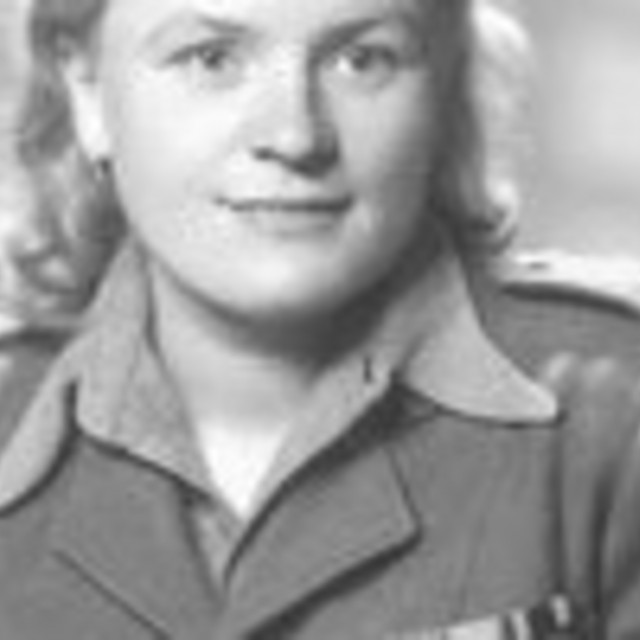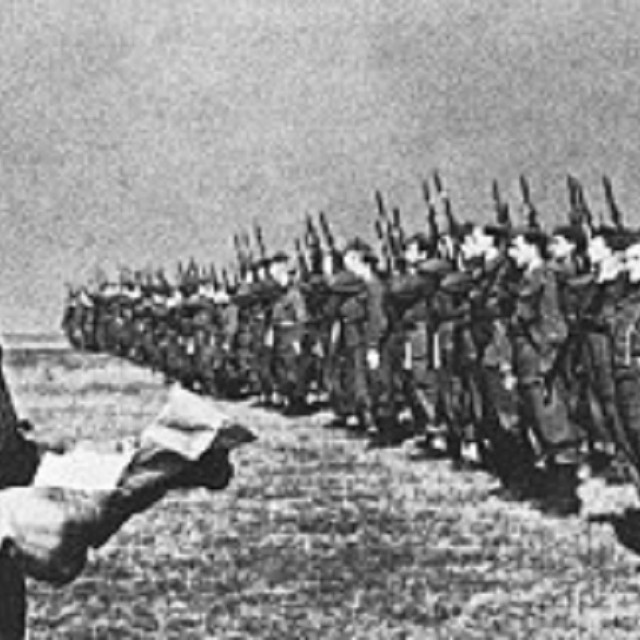
Vlasta Vyhnánková (née Pavlánková)
Vlasta Vyhnánková, née Pavlánková, was born on December 17, 1921, in the city of Ostrava in Silesia into a miner's family. The family's destiny was fatefully affected by the occupation of Czechoslovakia by the Nazis. According to her own words, Mrs. Vyhnánková decided not to wait any longer and leave to "the Soviet paradise that turned out not to be one". She went on this journey together with her friend Štěpánka Cejzlarová. They spent the next two and a half months wandering in the occupied Polish territories. They were helped by the local Poles who granted them shelter and fed them. They were observing the regular exchange of the German border guard at the river bank. They then crossed the river through the ford, as Mrs. Vyhnánková couldn't swim. On the other side of the river, a Soviet border guard saved her life but then immediately arrested her and her friend. They were sent to a labour camp for alleged espionage. At first, they worked in a brick factory, then in a forest across the Ural mountain range. The status of Czechs held captive in the USSR changed after the surprise attack of the Germans. With the support of the Czechoslovak exiles in Moscow and London, the Soviet government agreed to the creation of a Czechoslovak army corps, which began to form in early 1942 in the Ural town of Buzuluk. Vlasta Vyhnánková and her friend were released under the condition that they would join the newly formed Czechoslovak army in Buzuluk. The third day after her arrival in Buzuluk, Mrs. Vyhnánková was struck by high fever and was diagnosed with Malaria, from which it took her several months to recover. After she recovered, she was trained as a medic and after she passed the exams, she was the first woman in the new Czechoslovak army to be promoted to the rank of a lance corporal. In the Battle for Sokolovo, she was the leader of a group consisting of five girls in the 3rd company of Lieutenant Vladimír Janek. Vlasta Vyhnánková personally distinguished herself in battle. She spotted wounded Soviet soldiers during a round of enemy mortar shelling and together with Anička Ptáčková they rushed to them and treated them. They pulled the soldiers into safety and were awarded with a Soviet bravery medal and with a Czechoslovak 1939 war cross. After the retreat behind the river Don, the army proceeded on foot to Novochopersk, where Vlasta got married to Second-lieutenant Josef Vyhnánek. After the reorganization of the army, she stayed in the 1st brigade of the Czechoslovak regiment. In the battles for the Dukla pass, she was working in the field hospital, taking care of the wounded soldiers. After Dukla, she was with the army in the battles for Liptovský Mikuláš and Žilina. She remembers the glorious liberation of Czechoslovakia. However, she also remembers the helplessness they all felt when they were listening to Prague calling for help but couldn't do anything. The celebration parade in Prague took place on May 17, 1945. She was marching in the first line. After the war, she and her husband moved to Rožďalovice and she still lives there today. She has two kids - a son, Zdeněk, and a daughter, Blanka. For her bravery, she was decorated with two Czechoslovak war crosses and three Soviet medals - for bravery (Sokolovo), for merits (after the battle for Dukla pass) and with 16 Czechoslovak awards.




